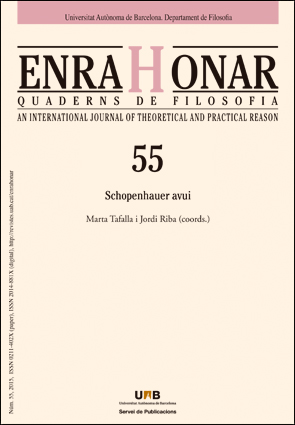How Schopenhauer’s ethics of compassion can contribute to today’s ethical debate
Article Sidebar

Main Article Content
Ursula Wolf
Universität Mannheim
The article has three parts. The first part exposes Schopenhauer’s critique of Kant who tries to derive morality from pure reason. The second part exhibits Schopenhauer’s ethics of compassion which is based on the insight that the will can only be moved by the “weal and woe” of a being and that moral action thus can only be possible where the other’s well-being or misery is the immediate motive. Schopenhauer claims that we encounter this phenomenon in our experience, namely in the everyday phenomenon of compassion. The advantages of this ethics of compassion over utilitarianism are demonstrated. The third part discusses some difficulties, e.g. whether this approach can cope with the area of justice.
Keywords
compassion, suffering, Kant, utilitarianism, moral motivation, moral rights, animals
Article Details
How to Cite
Wolf, Ursula. “How Schopenhauer’s ethics of compassion can contribute to today’s ethical debate”. Enrahonar: an international journal of theoretical and practical reason, no. 55, pp. 41-49, https://raco.cat/index.php/Enrahonar/article/view/302869.
Author Biography